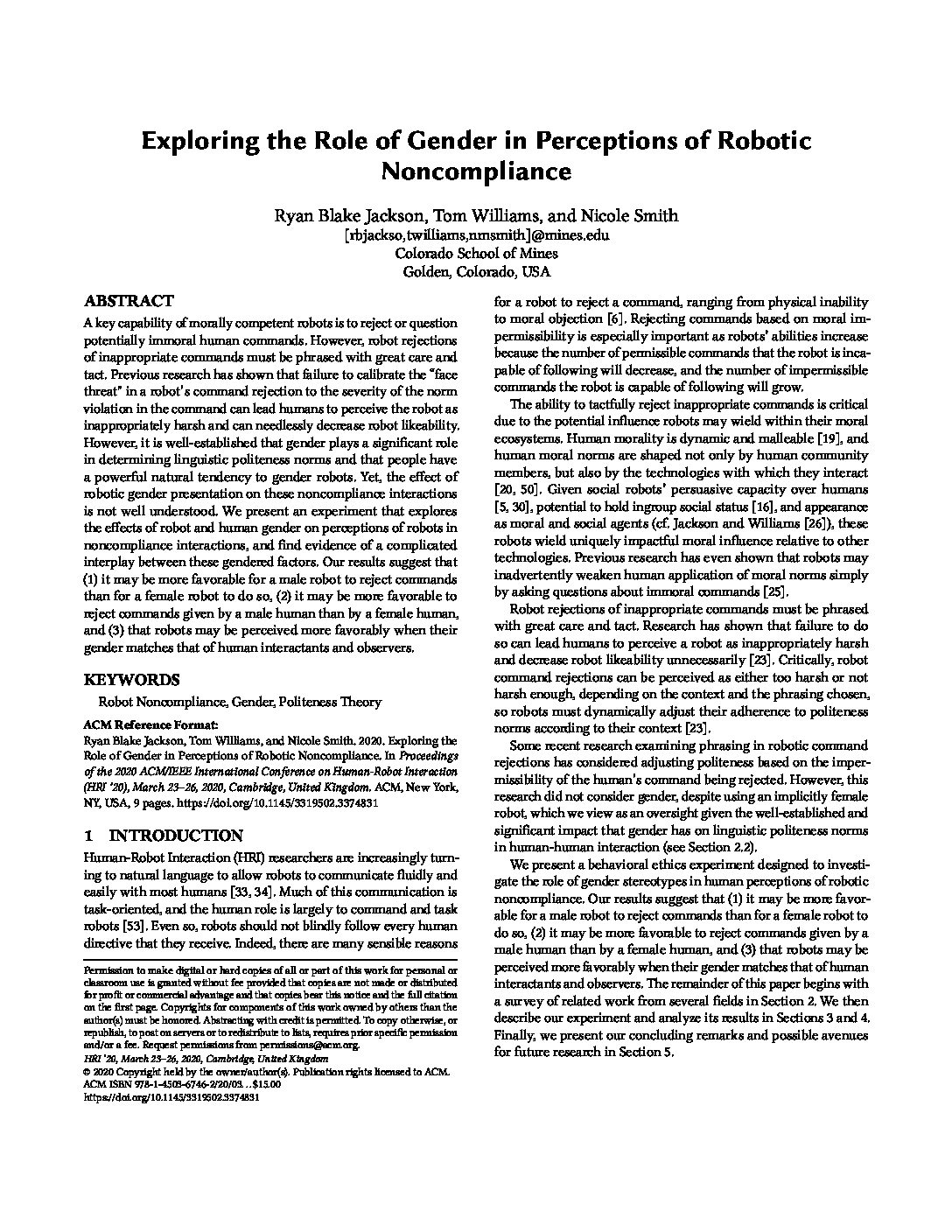Authors
Ryan Blake Jackson and Tom Williams and Nicole M. Smith
Venue
Proceedings of the 15th ACM/IEEE International Conference on Human-Robot Interaction
Publication Year
2020
A key capability of morally competent robots is to reject or question potentially immoral human commands. However, robot rejections of inappropriate commands must be phrased with great care and tact. Previous research has shown that failure to calibrate the ``face threat" in a robot's command rejection to the severity of the norm violation in the command can lead humans to perceive the robot as inappropriately harsh and can needlessly decrease robot likeability. However, it is well-established that gender plays a significant role in determining linguistic politeness norms and that people have a powerful natural tendency to gender robots. Yet, the effect of robotic gender presentation on these noncompliance interactions is not well understood. We present an experiment that explores the effects of robot and human gender on perceptions of robots in noncompliance interactions, and find evidence of a complicated interplay between these gendered factors. Our results suggest that (1) it may be more favorable for a male robot to reject commands than for a female robot to do so, (2) it may be more favorable to reject commands given by a male human than by a female human, and (3) that robots may be perceived more favorably when their gender matches that of human interactants and observers.
